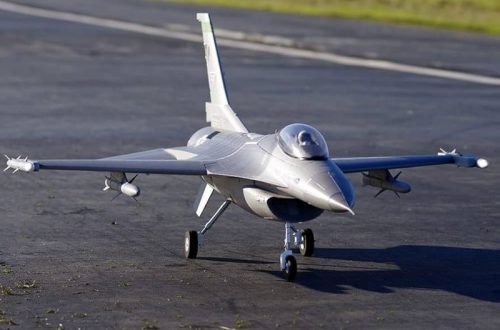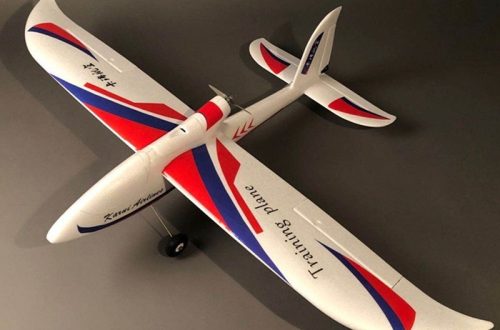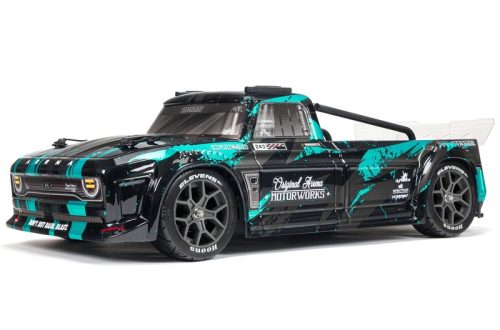Essential Gear and Setup for Small RC Car
Before jumping into the fray of small RC car racing, it’s critical to gather the right gear and ensure your setup is optimal. High-performance gear and fine-tuning your vehicle can give you an edge on the track. Whether you’re a novice or an experienced racer, your kit should include a quality transmitter, batteries with excellent capacity, a quick charger, and the right tools for tweaks and repairs.
Choosing the Right RC Car Model
Choosing the right model for your needs is the cornerstone of RC car racing. When starting out, it’s advisable to select a small RC car that is sturdy, reliable, and suited to the track you plan to race on. Look for models with favorable reviews among racers, ensuring the car can handle the pressures of racing while remaining responsive. Balancing budget and performance is also key; invest in a competitive car without breaking the bank.
Essential Modifications and Upgrades
To keep your small RC car in top racing form, modifications and upgrades are often necessary. Begin with essential components such as the motor, ESC (Electronic Speed Control), and gearing. A powerful motor can provide the speed needed, while an efficient ESC offers better control. Gearing adjustments can fine-tune how your car accelerates and handles. Beyond the internals, consider upgrading your suspension for better handling and durable tires for improved traction. Remember, each mod should enhance performance specific to the tracks you’ll face.

Basics of RC Car Racing
When delving into small RC car racing, it’s essential to understand the cores that make this hobby tick. This section will guide you through the fundamental aspects of RC car racing, enhancing your skills on various track layouts and enlightening you on the essential role of speed control.
Understanding Track Layouts
Knowing your track layout is key to mastering RC racing. Each layout presents unique challenges and requires specific driving tactics. Common layouts include oval, circuit, and off-road tracks — each with different turn angles, straight lengths, and surface types. Familiarize yourself with the track to strategize your driving path and anticipate turns. Practice sessions can help identify the best lines to take and understand how your small RC car handles on different circuits.
The Importance of Speed Control
Speed control is not just about going fast. It’s about managing your speed to suit different segments of the track. Effective throttle management can significantly influence your lap times and overall race performance. Learn to accelerate smoothly and brake efficiently, especially when approaching tight corners. This skill keeps your car stable and prevents spins or crashes. In races, consistent speed control can outdo intermittent bursts of full speed, making it a crucial factor in winning.
Advanced Driving Techniques
To excel in small RC car racing, honing your driving techniques is crucial. Grasping advanced driving skills will place you ahead of the competition, letting you navigate the track with precision and speed.
Cornering Skills
Cornering is a fine art in small RC car racing. Good cornering skills allow you to maintain speed without losing control. Here are key tips:
- Approach each corner with the right angle, aiming to hit the apex – the innermost point of the turn.
- Apply the brakes before the turn, not during. This helps to maintain grip.
- Steer smoothly into the turn, avoiding sudden movements that can cause skids.
- Once past the apex, gradually accelerate out of the corner to restore speed.
Mastering these techniques will improve your lap times significantly.
Acceleration and Braking Tips
Effective acceleration and braking are as important as cornering. They contribute to your control and overall speed on the track. Remember the following:
- Gradual acceleration prevents skidding, ensuring better control of your small RC car.
- Time your braking so you decelerate enough before a turn, without losing too much momentum.
- Use both acceleration and braking to navigate through technical sections, balancing the car’s weight for optimal control.
- Practice throttle control to avoid wheel spin and maximize grip during both acceleration and braking.
Incorporating these acceleration and braking tips will help you develop a fluid driving style, crucial for tackling the toughest of tracks.

Maintenance Tips for Peak Performance
Maintaining your small RC car is crucial for ensuring its longevity and optimal performance on the track. Regular checks and timely repairs can keep your car competitive and reliable, making routine maintenance an essential part of the racing routine.
Routine Check-Ups
To keep your small RC car in top shape, regular check-ups are necessary. Start by cleaning your car after each race session to remove dirt and debris that can affect its components. Check the motor and battery for signs of wear or overheating. Ensure all screws are tightened and that the body of the car has no cracks. Regularly inspect the alignment of the wheels and the condition of the tires, replacing them if they show excessive wear. These simple steps can prevent major issues down the line.
Dealing with Wear and Tear
Wear and tear on a small RC car is inevitable, especially with frequent use. To manage this, replace parts that are commonly affected by wear such as tires, bearings, and gears. Use quality replacement parts to ensure they last longer and perform well. Lubricating moving parts can also extend their life and improve the performance of your car. If you notice a drop in performance, consider consulting with a professional or a more experienced racer to get your car back to its best condition.
Tuning Your RC Car for Different Tracks
Tuning your small rc car is key for top performance on varied tracks. Each track type demands specific settings to cope with its unique challenges. Here, we will cover essential tuning tips that can make a huge difference in your race results.
Adjusting Suspension
Suspension tuning is crucial for your small rc car’s handling. On smoother tracks, a stiffer suspension maintains speed in corners. For rough surfaces, softer setups absorb bumps better, preventing jumps and loss of control. Start with the manufacturer’s baseline setup. Then, test and tweak for the best balance. Adjust shock oil viscosity and spring tension to refine your car’s response to the track’s demands.
Tires and Traction Tips
Tires are your only contact with the track. Choosing the right tire and maintaining it ensures superior grip and handling. Soft tires grip well on smooth, indoor tracks. Harder tires suit abrasive surfaces or higher temperatures. Clean tires before each race. Check for wear patterns and replace as needed to maintain traction. Balance your tires to reduce vibrations and ensure a smooth ride. Apply tire additives if rules permit, for an extra edge in traction.
The right tuning turns a good car into a great racer. Adjust suspension for the track type and choose tires that provide grip and durability. This preparation can lead to improved lap times and a better racing experience.

Racing Strategies and Tactics
To excel in small RC car racing, it’s crucial to adopt effective strategies and tactical approaches that enhance your performance. Developing a deep understanding of your competition and preparing meticulously for race day are essential components.
Analyzing the Competition
Analyzing your competition is a strategic move that can give you an edge. Start by observing the top racers during practice sessions. Note their strengths, weaknesses, and the nuances of their driving styles. How they handle their small RC cars around tight corners or long straights provides valuable insights. Additionally, take the time to review past race results, which can reveal consistent performers and potential threats. Understanding these elements allows you to tailor your racing strategy to outmaneuver other racers.
Race Day Preparation Tips
Preparation on race day is key to ensuring peak performance. Begin with a thorough check of your small RC car. Confirm that all components are tightly secured and functioning correctly. Charge batteries fully and carry spares if allowed. Study the track one last time to reaffirm your strategy, taking note of any changes in track conditions. Plan your pit strategy with your team, deciding in advance on refueling and tire changes. Finally, warm-up by doing a few practice laps, adjusting your driving to the day’s conditions. Proper preparation sets the stage for a successful race.
Joining Competitions and Community Events
Joining local races and community events can enrich your small RC car racing experience.
Finding Local Races
To dive into the competitive scene, finding local races is your first step. Check hobby shop bulletin boards; they often post upcoming events. Racing clubs and tracks often have schedules too. Look for flyers at local tracks or ask staff members when races happen. Online, racing directories list events by regions. Join a racing club or group to get updates and invites to members-only events.
Leveraging Social Media and Forums
Social media platforms are great for finding fellow enthusiasts and events. Follow local racing groups on platforms like Facebook and Instagram. Here, members share tips, discuss races, and plan meet-ups. Forums dedicated to small RC car racing can also be valuable. Sites like RC Tech or RC Groups have threads for race announcements and discussions. Use them to ask questions, share experiences, and connect with the racing community. These online resources are vital for staying informed and involved.





